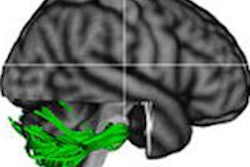Researchers from Rutgers University used functional MRI (fMRI) to show activity in different parts of the brain based on whether challenges were perceived as controllable or uncontrollable.
When people feel they have control over setbacks, they're more likely to persist, according to authors Jamil Bhanji, PhD, and Mauricio Delgado, PhD. Study results were published online September 4 in Neuron.
Activity in the ventral striatum -- a region linked to learning through trial and error -- in response to controllable setbacks was associated with greater persistence. However, activity in the ventromedial prefrontal cortex, which is involved in regulating emotion, related to the process of coping with negative emotions in response to uncontrollable setbacks.
In other words, individuals appear to correct their mistakes and persevere when setbacks are seen as controllable, but if setbacks are seen as uncontrollable, they may need to cope with negative emotions to continue.
The findings have implications for research in education, such as understanding how to promote student retention, as well as in promoting persistence through adversity in other areas.




















